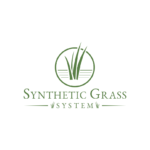Best Choice for Recreation Parks?
People all across the United States are flocking towards recreational parks to take part in games and various other activities. These parks not only serve as a place to play but also serve as an escape for many people who wish to relax, be social, or even get some exercise. The number one resource used by almost all of these recreational facilities is grass.
Grass is not only used for recreation but is also used to help promote a healthy environment. Unfortunately, grass has its downsides, such as maintenance and the fact that it depletes landfills of space. A new solution has been found in artificial grass, which offers many benefits over regular grass, including no maintenance and environmental friendliness due to being environmentally safe.
Regular grass is an eco-friendly material that, when planted correctly, helps reduce greenhouse gases and other pollutants. However, recycling old grass is costly and time-consuming, which can limit the growth of outdoor recreational facilities. The lifespan of each blade of grass is only about two years, making it necessary to replenish the land with fresh blades of grass after that period of time. This process is costly and requires a lot of resources due to the requirement for mowing, watering, and fertilizer.
What is Artificial Grass?
Artificial Grass is a type of surface that looks just like the real thing but does not have any of the downsides of regular grass, such as needing to be watered and maintained regularly. It is also green in color, which makes it look even more realistic.
Many people believe that artificial grass may be dangerous to play sports on or may pose a health risk. This is not true, though; artificial grass can be used for outdoor activities such as football, soccer, baseball, and many other popular recreational games. Not only does artificial grass not pose a health risk, but it can also help prevent injuries.
Where is Artificial Turf Installed in Parks?
Artificial turf is installed in parks all over the United States and has even been installed in international locations such as China, Germany, Thailand, and many other countries. The most popular places to install artificial grass include playgrounds and recreational facilities for sports like football (soccer) and baseball because that is what they are usually made to be used for.
It is also common for turf to be installed at parks around splash pads and water parks because the rubber in artificial grass won't get too hot in direct sunlight. You can also install it around pools, ponds, and any other bodies of water to prevent damage that would be done by wet feet. You can also find this material around playscapes, skate parks, and all other outdoor play areas.
Benefits of Artificial Grass for Recreation Parks
One of the main benefits of artificial grass is that it requires no maintenance. It does not need watering, mowing, or any other type of upkeep. This allows parks to hire fewer workers and save more money.
Another benefit of choosing artificial grass over regular grass is that you can install it almost anywhere. You can install it in empty lots, on slopes, and even next to the water. Regular grass cannot be installed in these types of places due to the risk of damage from different temperature changes.
These reasons make artificial grass a better choice for recreation parks than regular grass. While there are no real cons to choosing artificial over natural, it will all depend on what you as a park owner or manager prefer.
Disadvantages of Using Artificial Grass in Parks
There are no real cons to choosing artificial grass over natural grass, but there is one thing that may sway park owners. The cost of artificial turf is much higher than the cost of regular grass. Although this may deter some people, it can be justified by all the other benefits that come along with artificial lawns.
Some other cons to choosing artificial turf include difficulties of installation and removal of artificial grass without a professional company. Although it is not difficult to install or remove when trained, there are some people who might be deterred by this as well. The disadvantages are less prominent than the advantages of artificial turf, especially when considering the money saved on not having to mow the grass every week.
Bottom Line
The bottom line is that artificial grass is a better option for recreational parks than natural lawns because of the many benefits it offers. These benefits include everything from environmental friendliness to not needing maintenance or upkeep. In addition, the high cost of artificial turf can be justified by all of its other benefits.
In conclusion, artificial grass is a better choice for recreational parks than regular grass due to the many pros it offers in comparison to natural lawns. There are no real cons to choosing artificial turf, as it will all come down to personal preference.



